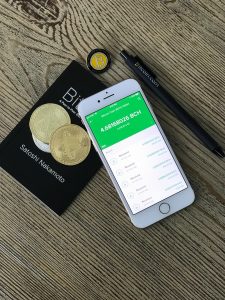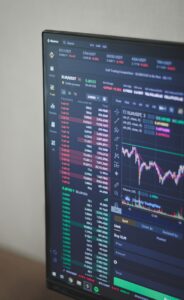Understanding the Role of a Spread Broker in Forex Trading
Forex trading is a decentralized market where currencies from all around the world are traded. It is one of the largest and most liquid markets, with trillions of dollars being traded every day. To participate in forex trading, traders need to go through a broker. The broker acts as an intermediary between the trader and the forex market, facilitating the execution of trades. One type of broker commonly used in forex trading is a spread broker.
A spread broker, also known as a market maker, is a type of forex broker that makes money by charging traders a spread. The spread is the difference between the bid price and the ask price of a currency pair. When traders buy a currency pair, they pay the ask price, and when they sell a currency pair, they receive the bid price. The spread is essentially the cost of trading and represents the profit for the spread broker.
The main role of a spread broker is to provide liquidity in the market. Liquidity refers to the ease with which a trader can enter or exit a trade at a desired price. Spread brokers ensure that there is always a buyer and a seller for every currency pair, allowing traders to execute their trades quickly and efficiently. They achieve this by maintaining a large pool of liquidity providers, such as banks and financial institutions, and constantly quoting bid and ask prices for various currency pairs.
One advantage of using a spread broker is the fixed spreads they offer. Fixed spreads remain constant regardless of market conditions, which provides traders with certainty and transparency. This is particularly useful for traders who engage in high-frequency trading or those who rely on precise calculations to determine their profit and loss. Fixed spreads also allow traders to better manage their risk, as they know the exact cost of trading for each trade they execute.
Another advantage of using a spread broker is the ability to trade with leverage. Leverage allows traders to control larger positions with a smaller amount of capital. Spread brokers typically offer high leverage ratios, which can amplify potential profits. However, it is important to note that leverage also increases the risk of losses, and traders should exercise caution when using leverage in their trading strategies.
Spread brokers also provide traders with various trading platforms and tools to assist them in their trading activities. These platforms are often user-friendly and feature advanced charting capabilities, real-time market data, and technical analysis tools. Additionally, spread brokers may offer educational resources, such as webinars and tutorials, to help traders improve their trading skills and knowledge.
It is essential for traders to choose a reputable spread broker to ensure a secure and fair trading environment. Traders should consider factors such as regulation, customer support, trading conditions, and the broker’s reputation in the industry. Regulatory bodies, such as the Financial Conduct Authority (FCA) in the United Kingdom or the Securities and Exchange Commission (SEC) in the United States, oversee and regulate forex brokers to protect traders’ interests.
In conclusion, a spread broker plays a crucial role in forex trading by providing liquidity, offering fixed spreads, enabling leverage, and providing trading platforms and tools. Traders should carefully choose a reliable spread broker to ensure a safe and efficient trading experience. It is important to understand the role and functions of a spread broker to make informed decisions and maximize trading opportunities in the forex market.






